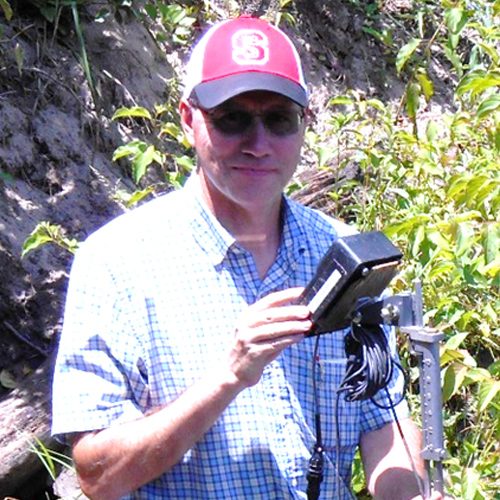Daniel Line
Education
M.S. Agricultural Engineering Pennsylvania State University 1986
B.S. Agricultural Engineering Pennsylvania State University 1984
Area(s) of Expertise
Water quality monitoring and modeling and BMP evaluation
Publications
- EFFECTS OF LIVESTOCK EXCLUSION ON POLLUTANT EXPORT FROM A NORTH CAROLINA BEEF COW PASTURE , JOURNAL OF THE ASABE (2023)
- Uncertainty in phosphorus fluxes and budgets across the US long-term agroecosystem research network , JOURNAL OF ENVIRONMENTAL QUALITY (2023)
- Estimating Changes in Peak Flow and Associated Reductions in Flooding Resulting from Implementing Natural Infrastructure in the Neuse River Basin, North Carolina, USA , WATER (2022)
- P-FLUX: A phosphorus budget dataset spanning diverse agricultural production systems in the United States and Canada , JOURNAL OF ENVIRONMENTAL QUALITY (2022)
- The flood reduction and water quality impacts of watershed-scale natural infrastructure implementation in North Carolina, USA , ECOLOGICAL ENGINEERING (2022)
- Natural Infrastructure Practices as Potential Flood Storage and Reduction for Farms and Rural Communities in the North Carolina Coastal Plain , Sustainability (2021)
- NUTRIENT EXPORT FROM AGRICULTURAL WATERSHEDS IN THE PIEDMONT AND COASTAL PLAIN, NORTH CAROLINA , TRANSACTIONS OF THE ASABE (2019)
- A Bayesian total uncertainty analysis framework for assessment of management practices using watershed models , ENVIRONMENTAL MODELLING & SOFTWARE (2018)
- Effectiveness of Livestock Exclusion in a Pasture of Central North Carolina , JOURNAL OF ENVIRONMENTAL QUALITY (2016)
- Effects of livestock exclusion and stream restoration on the water quality of a North Carolina stream , Transactions of the ASABE (2015)
